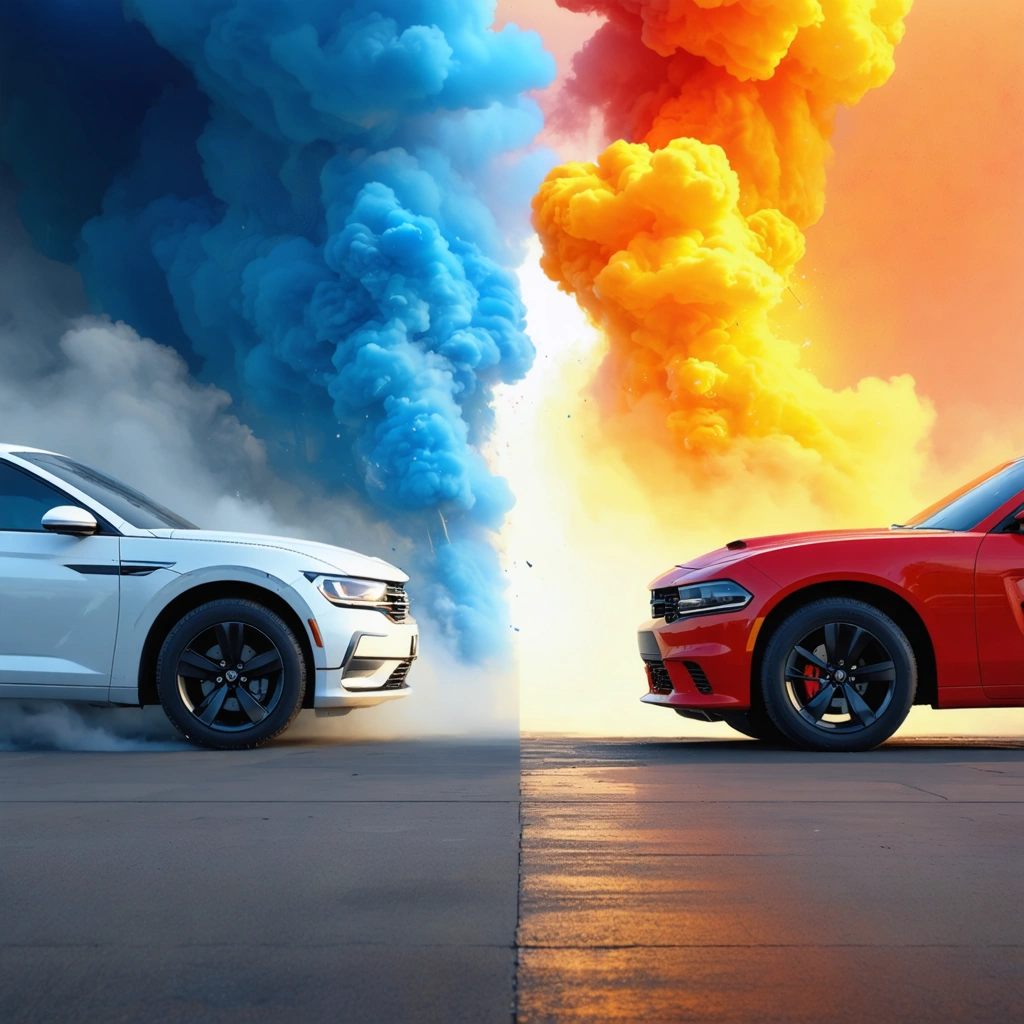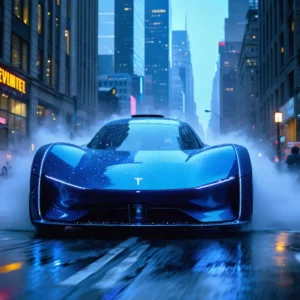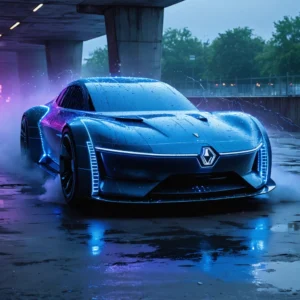
In a dynamic twist of events, the electric vehicle (EV) market witnesses a riveting showdown between the iconic Volkswagen ID Buzz and the daring Dodge Charger EV. As sales numbers steadily hover almost equally, the controversy intensifies and the rivalry fuels passionate debates among automotive enthusiasts. While both vehicles embody innovative techniques and futuristic aesthetics, discerning buyers now weigh not only design and performance but also brand heritage and market reputation. Moreover, industry experts contend that each vehicle offers distinctive advantages. Therefore, consumers and analysts enthusiastically track every sale as the neck-and-neck competition accelerates, driving both brands toward unprecedented market penetration.
Market Overview and Emerging Trends
The current EV arena transforms rapidly as emerging trends consistently reshape consumer preferences. Meanwhile, the Volkswagen ID Buzz and the Dodge Charger EV capture significant attention for their contrasting yet complementary visual appeals and technological prowess. Furthermore, enthusiastic early adopters praise each model for comfortable interiors, green energy credentials, and robust performance metrics. As a result, market dynamics evolve amid fierce competition, and automotive networks highlight both successes and potential challenges. In addition to surprising technological leaps, a surge of innovative ideas boosts the overall appeal of these vehicles across global markets.
Understanding Sales Metrics and Consumer Insights
Data analysts meticulously review sales metrics, which often mirror shifting consumer sentiments. Subsequently, detailed reviews suggest that the Volkswagen ID Buzz focuses on sustainability, spacious design, and technological flair, whereas the Dodge Charger EV emphasizes performance, bold aesthetics, and robust power delivery. Buyers increasingly appreciate these attributes for the following reasons:
- Advanced connectivity and infotainment
- Robust battery performance
- Innovative safety features
- Sleek, futuristic design cues
Consequently, each factor guides purchasing decisions that drive the ever-intensifying sales rivalry. Notably, influential reviewers provide balanced insights as they explore how both EV giants redefine the competitive landscape.
Comparative Analysis: Features, Performance, and Design
A detailed comparative analysis clarifies that these vehicles contest on multiple fronts. First and foremost, the Volkswagen ID Buzz impresses with its retro-inspired design while incorporating modern technology in a minimalistic body. Conversely, the Dodge Charger EV takes risks with bold lines and muscular aesthetics that resonate with performance enthusiasts. Moreover, the table below outlines key differentiators between the two models:
| Feature | Volkswagen ID Buzz | Dodge Charger EV |
|---|---|---|
| Design Philosophy | Futuristic with retro cues | Bold and aggressive styling |
| Performance | Smooth acceleration, eco-friendly | High horsepower, rapid acceleration |
| Interior Technology | Advanced infotainment system | Innovative connectivity features |
| Market Focus | Urban mobility and efficiency | Performance and power enthusiasts |
Furthermore, both vehicles appeal to diverse market segments, which intensifies the debate over which model better meets evolving consumer needs.
Navigating the Sales Battle with Strategic Insights
Industry insiders emphasize that sales competition hinges on several strategic elements. Firstly, brand loyalty emerges as a significant asset. Secondly, each manufacturer leverages unique marketing strategies that spotlight innovation and environmental responsibility. Additionally, the following numbered list highlights crucial strategic moves:
- Enhanced digital marketing campaigns targeting younger demographics;
- Innovative test drive experiences that emphasize performance metrics;
- Partnerships with tech companies to improve sustainability initiatives;
- Adaptive pricing models to stay competitive in fluctuating markets.
Thus, the strategic emphasis on innovation and technology consistently elevates the competition, further fueling the sales rivalry. Moreover, manufacturers adapt their advertising and outreach efforts according to real-time consumer feedback, which ultimately promotes continuous improvement and market responsiveness.
Consumer Experiences and Expert Opinions
Observers note that both enthusiastic customers and skeptical critics voice fervent opinions regarding design and performance. Importantly, numerous customer testimonials and expert reviews indicate that the Volkswagen ID Buzz excels in delivering a smooth, eco-friendly ride, while the Dodge Charger EV captivates with its formidable power and performance metrics. Additionally, forums and social media platforms frequently host discussions where opinions diverge, and passionate debates spark over each model’s merits. Consequently, the diverse range of opinions mirrors the broader market dynamics, and further research often indicates that different geographic regions favor one model over the other. In summary, the evolution of consumer experiences significantly impacts future trends.
Innovative Technology and Future Prospects
Technological innovation steers the EV market forward, and both models continuously integrate cutting-edge features to cater to evolving demands. Specifically, the Volkswagen ID Buzz introduces novel battery management systems and enhanced connectivity options that appeal to tech-savvy users. Conversely, the Dodge Charger EV capitalizes on its high-performance engine and state-of-the-art safety systems, thereby attracting performance-focused clientele. Moreover, manufacturers invest significantly in research and development, which sets the stage for future iterations that promise improved range, faster charging, and adaptive driving modes. As a result, experts predict that the current sales standoff signals a long-term trend where innovative technology transforms the overall landscape.
The broader industry ecosystem continuously adapts to new trends and competitive pressures. Therefore, governments and regulatory bodies increasingly promote green energy initiatives, which indirectly boost EV sales. Additionally, international collaborations and sustainability programs further highlight the importance of clean energy transportation. Consequently, these broader factors contribute to market stability and encourage long-term investments. Furthermore, as financial markets embrace sustainability, incentives and rebates for eco-friendly vehicles become commonplace, which in turn reinforces the momentum observed in the sales figures of both the Volkswagen ID Buzz and the Dodge Charger EV.
Finally, industry insiders note that long-term success will rely on persistent quality improvements and dynamic consumer engagement. Manufacturers regularly host promotional events, and exclusive test drives provide valuable hands-on experiences that convert potential customers into loyal brand advocates. Moreover, feedback loops and real-time data analyses ensure continuous adjustment to consumer preferences. As a result, the ongoing rivalry between the two models continues to drive innovation, providing a promising outlook for the EV sector. Observers remain optimistic that such competitive dynamics will ultimately benefit consumers by fostering elevated standards and a wider range of personalized options in the near future.




